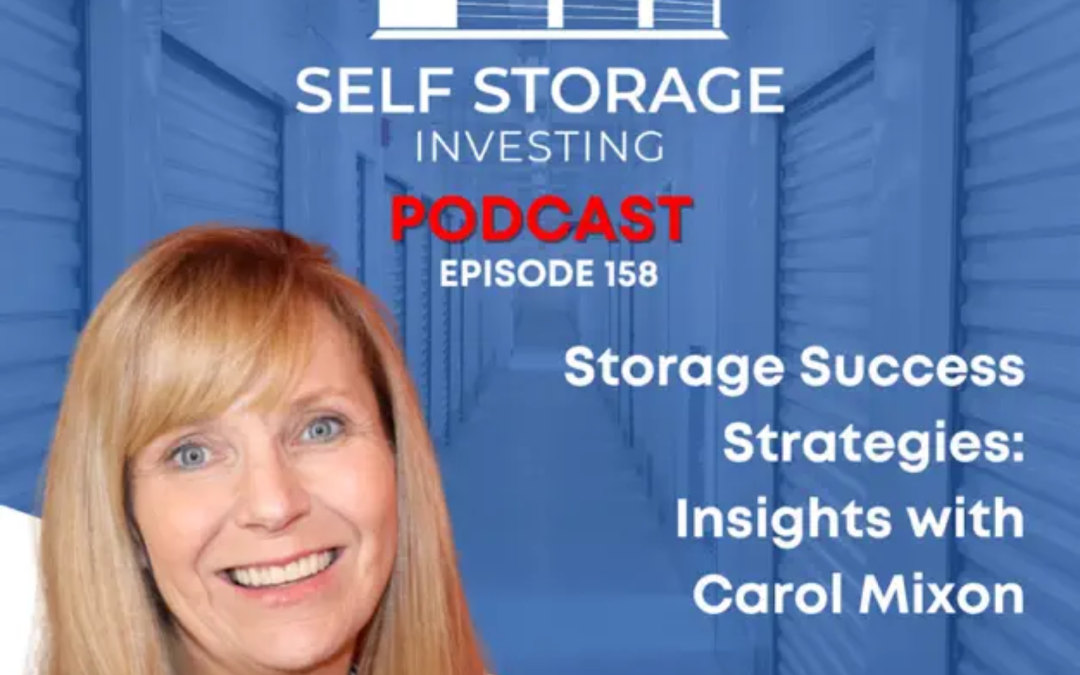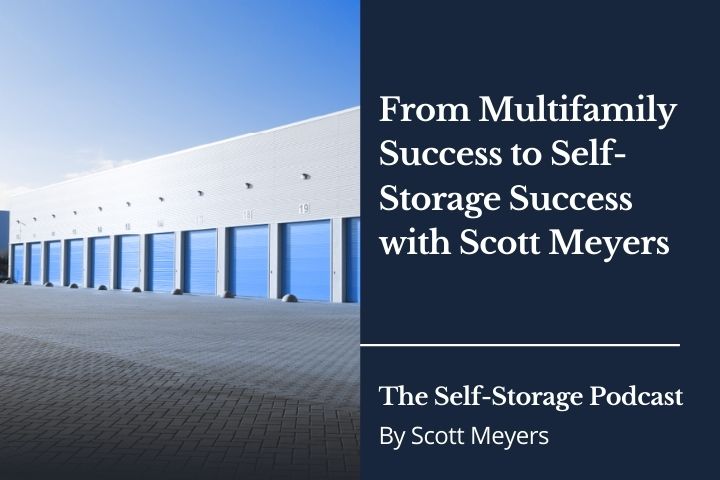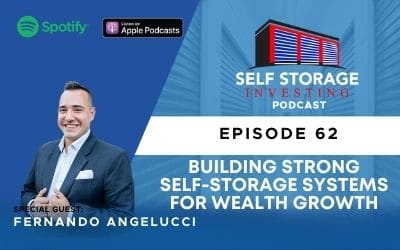Carol Mixon is a veteran in the self-storage industry. In this episode she discusses the importance of maintaining a strong sales technique and understanding the market when investing in self-storage. She also emphasizes the importance of having a good manager for a storage facility.
Mixon believes that the self-storage industry is still a profitable venture, especially in smaller towns where development is ongoing. However, she advises caution and thorough research before investing.
WHAT TO LISTEN FOR
2:54 The Rapid Growth and Female Leadership in the 80’s
4:02 Adaptability and Learning on the Job
6:23 The Importance of Persistence and Customer Relationships
8:41 The Changing Perception of Women in Self-Storage
Leave a positive rating for this podcast with one click
CONNECT WITH CAROL MIXON
Website | You Tube | Facebook | X | LinkedIn | Instagram
CONNECT WITH US
Website | You Tube | Facebook | X | LinkedIn | Instagram
Follow so you never miss a NEW episode! Leave us an honest rating and review on Apple or Spotify.
Episode Transcript
Carol Mixon (00:00):
Your daughter constantly having voice lessons. If you stop voice lessons for a while, your voice tapers off, you’ve got to keep using it.
Announcer (00:15):
This is the Self Storage Podcast where we share the knowledge and skills from the industry’s leading investors, developers, and operators to help you launch and grow your Self storage business. Your host, Scott Meyers, over the past 18 years has acquired, developed, converted and syndicated nearly 5 million square feet of Self storage nationwide with the help of his incredible team at Selfstorageinvesting.com, who has helped thousands of people achieve greatness in Self storage.
Scott Meyers (00:51):
Hello everyone, and welcome back to the Self Storage Podcast. I am your host at Scott Meyers and you are in for a treat. Today we have Carol Mixon, who is one of the absolute nicest people, one of the nicest people you’ll ever talk to in the industry. She has been around in the industry for a very long time and has seen just about all because she’s been there since the beginning, has done just about every role there is to have in self-storage. And it’s an honor to be able to introduce you to her podcast nation if you haven’t met her before at one of the trade shows or read any of her writings in the trade show magazines and the publications, or had an opportunity to work with her because she once again just holds this very esteemed position of being one of the old guard in the industry. And so Carol, it is so good to have you on the show. Welcome to the Self Storage Podcast.
Carol Mixon (01:40):
Well, thank you so much for having me, Scott. I appreciate it.
Scott Meyers (01:44):
Well, I want to start, Carol, by just giving the audience if there is anybody out there in Storage Nation that hasn’t heard of you, give them a little bit of background and history on how you got started in this incredible industry.
Carol Mixon (01:55):
Yeah. Well, 1984, so that’ll kind of date me for sure how old I am. Right out of college, I had a degree in secondary education and in vocal music I sing opera. And so I thought just coming back to Tucson, my mom and dad had taken a job as self storage managers, which they used to be. Both of ’em were teachers and they had an investment they made and a lot of houses, they had get a job. Then their friends said, Hey, get storage. And Tom Litton’s parents had, that was husband one. His parents worked in self storage, so they knew the people and everything. So they got my mom and dad a job. But the weird thing is they left to go to a doctor’s appointment and they said, Hey, can you fill in while we’re gone? So I did and I won the award.
(02:54):
I guess they called and shopped and I answered, and I won the phone award and they didn’t even know who I was. So Joe Nimchuk and he shows up and he’s like, who are you because you won our award. And Mel Holsinger was there too. So both of ’em were like, we want to hire you. And I said, oh, no, no, no. I’m singing in Lata and no, I want to be an opera singer. And that was, I’ve worked so long since I was like 10 to be an opera singer. And then my parents were like, well, you need something to keep you afloat, so do this. So try and you can still sing at night or whatever. So I did, and I did that for a while and national was such amazing amount of growth. We went from 16 to 69 properties in three years and in the eighties, and we were constantly on the move and I was the only female executive in the group, so it was a little odd.
(04:02):
But the beauty of that was the shops and max dollars, they all took care of me and they was just like, listen, you can do this. And they were so supportive and there was just nothing that they thought I couldn’t do and fix. And I got into be able to a lot of construction because sometimes usually you don’t, if you’re a trainer, you don’t ever touch that. But when they’d send me out to new locations to train the managers, nothing would be ready really. And then they’re like, well, look at the plans and see where we’re, and so then I had to learn plans. And so I think that trial by fire is kind of good for some people. Some people don’t like it, but I did. I just kind of thought, you know what, I’m just going to do the best I can do and be the best person I can be and try to learn everything. And I did. And I think that it’s been really positive for me because I’ve taken from ground up stores and there are a lot of men that have done that, but there aren’t as many women. But I will say now to see more women in this is good, but I don’t think I was better for any reason or I liked it.
(05:22):
I just like the storage business. It’s under my skin now and can’t even imagine going out and being a singer now. It would just be this is so fulfilling to me. But I do, the exciting part is I still get to stand up in front of people and speak, and I get to do that part of it where you enjoy the audience and I interact with the audience and I think there’s just so much to learn. And sometimes there are things that I’ll look at. I’ll give you an example. I had this one guy that owned a ski resort in Tahoe area and he did not like me. He wanted to work with my ex-husband. And he’s like, you’re too pushy. You’re too pushy for me. And I said, well, and I said, what do you mean pushy? And we were looking at this piece of property in northern California and it was too small.
(06:23):
I thought based on the information that I got doing the study that we could probably build like 60,000 or 50 or 60,000. But I thought, why don’t we just do a little dirt work, which was a lot of dirt work as it turned out. So I said, let’s do this dirt work. And then, well, anyway, we got it rented up in six months and that’s probably the fastest I’ve had any store run up. But years later, I was taking my kids skiing in Tahoe and I stayed in the car. They went and got the skis. The owner comes out and he goes, Hey Carol, I wanted to apologize to you. He said, you have made me a rich man. And he said, I have no debt. All my kids are settled for life. It is so weird when you think about it, this business that I have with skiing, you can’t ever leave it. You can’t let the storage thing go and make money. It is the beauty of self-storage, isn’t it? So I think that’s kind of cool. And he said, I’m sorry I ever gave you a hard time, but didn’t really. I look at it, yeah, we may have had a difference of opinion about dirt. That’s what we had. I said, I think we just were arguing about dirt moving more than that.
Scott Meyers (07:54):
Well, Carol, you’ve given me hope and we shared before we got on camera that my daughter is on a similar path there was to you and that she is an opera singer and went to school for that. And of course there was a little bit of concern your parents that we have as well, that well, I’m not so sure that you’re going to be able to support yourself with that. So there’s hope that my daughter will get into the storage business someday. But you’re right, it’s been good that you’ve been able to at least scratch that itch of being on stage and being comfortable to do that as you do so well at the trade shows and in your educational events as well. And I don’t want to turn this session, I don’t want to turn this episode into a, Hey, let’s see what women can do in self storage.
(08:41):
But at the end of the day, let’s face it, at least speaking for myself and my organization, my entire organization is run by women. And we don’t call it pushy Carol. We say that it seems like the women in our organization have a greater sense of urgency, or at least they share my sense of urgency. And they are doing an amazing job. And quite honestly, we’ve rolled a few men out of those roles and specifically sought out females to fill those positions. So again, we don’t want to turn it into that, but certainly we’ve seen there’s been a rise. I think it’s some very successful and very powerful women in our industry, which was what used to be the old men’s club.
Carol Mixon (09:26):
But I guess what I felt so good about is that I was in that group and I didn’t feel like less than, or I never felt any kind of like, I’m woman, hear me roar, right? I was just like, I’m just going to show them how good I am. I look at people like that. For me it’s, I’m not looking at male or female. I’m looking at just the person, is that person going to be strong enough in this industry to do what it takes to be able to, and even with my kids, my daughters, she can be strong, but I think there are times where she’ll back down some things. I’m like, it’ll be interesting to see how she fares in the business world. I don’t know. We’ll see.
Scott Meyers (10:19):
Well, there’s a lot to be said for that and there’s a lot to be said for, I’m stepping into this role now and accepting it, Carol, that well, I’m still a pup in this industry compared to you. I’ve only been in storage since 2005, but having been through a couple of recessions in the pandemic, I think that allows you to see a little further down the road as to what’s coming. And you just build upon that experiential knowledge. And there’s certain things you see in the business and or business in general. If you’ve been in one for a particular amount of years that you just know in, you’re nowhere when something’s right or wrong and you react to that and certainly you’ve got another recession under your belt and then some years. Tell me how that has served you and what the difference is that you see and how you react and how you approach the decisions or approach just maybe business in general now compared to say maybe your first recession or going back 15 years. How has that changed?
Carol Mixon (11:10):
Yeah, I’ll give you a good example of that because I had a gentleman that hired me to do a feasibility study in Utah and it was in Salt Lake City. And so I thought, okay, I’m a driver. So I went from Tucson up there and it it’s easy drive and it was lovely. It’s beautiful country. So I get up there and there are 13 storage properties with a one mile radius and 52 in a five. Yes. And so he already had a storage property there himself and it was maybe 60 units, 70 units, something like that. And he wanted to tear that down and then go up build up, which I wasn’t worried about that, but when he came to me, the plans were already done. So I think, wait a minute, you put the cart before the horse because you should have done the study before you did. You come to me with the plans. So they were already invested in it and I said no, and they didn’t pay me, throw the rest of it that. But you know what? I can’t say yes. I would not say yes because it was, it’s my reputation I think. And would I ever do that to even someone I hated? No, I wouldn’t steer ’em down a long path just because I thought, yes, can they do it? Will it fill up? Maybe in time it will, it’ll take some time.
(12:54):
But this business, this is why I think it’s important to have professionals help you and to be able to, especially if you’re new and you don’t have a lot of experience in that, even if you know the marketer, you think the market still being able to get that wisdom. I know national, we had four locations up in Utah in the eighties, so it wasn’t an easy market. And I’ll tell you, it’s so cyclical also because of the weather there because you don’t have as much movement during the winter, so we don’t have as many rentals. That’s why Florida and all the warm states are nice all year long. We have a great ins and outs in self storage, but those colder climates, they can kind of shut down for sure. I guess.
(13:51):
I think the beauty of storage is that you can make something out of in nowhere. I’m going to say I also did a feasibility study and I looked at it this place and I’m like, we’re in the middle of nowhere. I mean there were Buffalo, my son and I saw Buffalo while we were going out there and there’s nothing else. And we went to all of the competitors and some of the competitors were 40 miles away, so they’re not really competitors, but I’m just saying the other storage, we went to every storage property there. And the weird thing is just like I can’t tell these people that it wouldn’t work because it will, it’s on their piece of property. And so then they went ahead and they’re moving along very nicely and they’re trying to do it kind of remotely on their own property and it’s all working.
(14:45):
But I think where it is, how unique is all of it can make a lot. And I think for me, probably the thing that changed my view of self storage was one of my stores in Hawaii, and I don’t know if you know of that, why Kelly self storage, it’s out bomb bunkers. When I did the feasibility study, well at first my ex-husband went to Hawaii. He calls me, he’s like, I have no idea you’re going to have to fly over because I am going to mess this up. You better come look at it. So then I fly out and I look at ’em like there is not a woman in the world that’s going to rent from these bomb bunkers. They were overgrown and they were rusty on the outside, but the guys were leasing them because it’s hard to buy land in Hawaii because you have to be Hawaiian or well supposed to be someone who’s in the deal is going to be Hawaiian.
(15:50):
So anyway, I thought, well, maybe if we just take the outside of them and painted a navy gray and then name the battleships from Pearl Harbor that went to and try to make it unique. And that store now is, it’s amazing. It’s like a hundred thousand square feet. It’s buried in the mountain. It was so difficult to rent up. But I had a great manager that was there, Jenny Rodriguez, she just won manager of the year from the mini storage of Messenger because she’s just so amazing. I think when you’re building something like this, if you think you’re going to build a Taj Mahal, you still have to have that nugget of that person that’s at the property, the people that are at the property. You still important. And I still believe this is the people that are answering the phone, the people that are interacting with your customers.
(16:48):
And I know there are things that are, a lot of people would like to go completely remote. I think it’s certainly possible and podo, Oklahoma. But if you have a bigger property, most of the properties that I build, we wouldn’t even a hundred thousand square feet of something or I did 200,000 square feet in the Bay Area, we had 2000 units. I mean it was like, oh, it was just a mess. It’s a lot of people and a lot of people getting interacting with each other and it’s like, I’ll never build that one, build that big again. It was too big. As big as the Lowe’s next door. I don’t know.
Scott Meyers (17:29):
Well, Carol, anybody who’s been around the industry for a while remembers and watching your project in Hawaii and to this day, I somewhat hesitate. I love to tell that story when we have our self storage academies to talk about the different things that you can do in self storage. And for years I would show and say, Hey, you can even build in an old abandoned bomb bunker in Hawaii. Now granted it’s in Hawaii, but kind of tell the story, but then I don’t want to give people the false sense of hope that they can’t make that happen for the reason anywhere. For the reason you just mentioned, you still have to have a rockstar who is dedicated to you and that facility that is leasing and managing that facility that has that sense of urgency and sense of ownership, they owned it themselves there. Otherwise those remote locations will not work and you can’t underestimate the person that you put behind it that’s managing that asset for you.
(18:21):
And you and several of the other consultants will continue to be that drum over and over to say, listen, we never understand why. And we still see it in the industry that someone would buy a 1 million, 2 million, $3 million asset and try to get by with the smallest amount of salary possible. And so they’d hire their hairdresser or the server at the restaurant because they have a nice personality. And it’s like if you had a $3 million stock portfolio or you named the investment, you wouldn’t put your hairdresser in charge of it. So why do you think that that’s appropriate to do for a self-storage facility? So again, can’t underestimate the importance of putting the right person behind the desk there as well. That’s true. You’ve go ahead.
Carol Mixon (19:06):
That’s critical for me is getting the right people for the property because not every person works at their community. It’s all different. And I put people in the wrong places and I’ve had to move ’em around because I’ve made a mistake. I put a person that wouldn’t go with the community, so I made that mistake.
Scott Meyers (19:28):
Well, Carrie, you’ve been through a number of different economies, if you will, or markets in self storage, all in properties in the meantime, co consulting with folks, and there’s a lot of things as we just discussed that you can see coming maybe before other folks do as well. Every recession is different, every market economy is a little bit different. So I’d kind of like to get your take on the market that we sit in right now at the beginning of a 2024, whether it’s how you are navigating this market, your approach to it, so how you’re approaching this market and investing in as well as how you’re advising those folks that come to you to help them with the projects that they have upcoming this year.
Carol Mixon (20:07):
Yes. Well, I’ll just start by talking about skill check because we evaluate the employees sales techniques, so we see very quickly what’s going on and how things are going out there. And it’s interesting because when things are really good, people don’t shop as often as they meet. I mean to me it’s like your daughter constantly having voice lessons. If you stop voice lessons for a while, your voice shapers off. You’ve got to keep using it. So I think that’s the idea about evaluating the sales techniques because that’s super important in storage. But we see the rates going down, we hear what the rates are coming in when we’re doing the shopping and we see the availability going up and we think, okay, well this recession. But the thing is that’s why I’m so careful about building and when I’m doing feasibility studies, I’m thinking this market is just way oversaturated.
(21:13):
And I’ve said that in other places and I’ve seen someone build, and that’s still maybe longer than it maybe should have taken, but I think you need to look at that each asset and where it’s at separately based on where that it’s at and just try to continually move it forward. And I mean in income is what we hope for. Sure. But that’s not always easy. I will say there are times that especially if you’ve had an asset a long time, you’ll see some real cyclical stuff happening in rates. And I know people don’t want to go down in rates, but there are times when I have had to go down unfortunately.
(22:03):
But the fact is still rented is better than not rented it less than you might’ve expected. And I think sometimes we get a, if you look at your economic occupancy, because that’s a big thing for me, people say, oh, I’m 90%, 99 or a hundred percent occupied. I’m like, yes, but you’re bringing in money if you’re 63, 63. And that’s no joke. I mean, I just saw that the other day. The man said, oh look, my manager’s doing a great job a hundred percent. I said, no, but did you look over and see how many concessions are giving away how it’s, and it wasn’t really delinquencies at the store. And then we checked how they were selling and they were just giving the price basically. So I think you have to run these assets and not just think if you build it, it’s just going to be cash flowing all the time for you and be great because I’m not saying there’s not going to be good cashflow, but I’m saying that it’s not that you couldn’t do better and you couldn’t make the property better and more profitable.
Scott Meyers (23:16):
That was always music to my ears when I’m walking a facility with the owner that I am looking to buy and they say by putting their shoulders back and puffing their chest up that look how good of a job we’re doing because we are 100% full. And that’s always music to my ears because all that means is that they’re probably the lowest price in the market and they’re giving things away. And sure enough, they’re 20% below the rest of the market in terms of their street rates. And yeah, their manager is friends with everybody and they’ve given them free rent and or reduced rent, and that means nothing but upside. And so those are the ones, the facilities that I hope Carol Nixon does not get ahold of and have skill check go visit before I do, otherwise I’m going to be paying more. But we see it out there all the time.
(23:59):
And that’s part of the race that we’re in right now too, is we are seeing the great roll up in our industry. And I would consider, and I presented on this at the inside sell storage show two years ago, that we are the last great western frontier, if you will, in commercial real estate where the other asset classes, they are predominantly owned, 80% are owned by the REITs or the national players. And so storage is just the opposite. We’re at about sitting at about 20% and somewhere about 35 to maybe approaching 40 in terms of REITs and national players. But that’s still a lot of upside for folks to be able to go out to buy these smaller assets. They’re not all mom and pops, but underperforming maybe or smaller markets and then aggregating them and rolling ’em together and then selling ’em off to the larger regional national player or reit. So tell me, maybe give me a sense of your thoughts on the acceleration of that and timing or what you’re seeing with regards to that whole movement from your lens.
Carol Mixon (25:03):
Yes, I am a bit worried, but certain markets are hotter than others and I feel like where we’re at now, I would just want to be careful everything that I’m looking at to build or if you were purchasing something, I am very careful, but I will say this for me, I like to go find things that are undermanaged and underperforming, which lots of people would want to do. If you’re buying something that’s already existing, I kind of would prefer to build my own, but if in lieu of that, because it takes a long time to do, I think that it’s easy to buy something and manage it better than someone else’s, but you have to know how to read the reports correctly. You have to realize what else is in this market, who else is in this market, the people, the players that are there. I know that if I have a store Quest in the market, they’re going to be keep the high prices they’re going to, they’re not going to say Uhoh, we better shut down and go cheap or something. So I think that all of those things are factors when you’re looking and trying to find that right property. And it’s getting harder, isn’t it, Scott? I mean it
Scott Meyers (26:31):
Is. And there is no more low hanging fruit. And as we’ve known and as we teach our folks on our education side of the business that deals are made, they’re not just found that’s gone. And you have to understand the underwriting and you have to understand the market. It’s one thing to understand and determine whether you have a good, call it a deal on a property, but then where are you going to take it in terms of your exit strategy and the valuation? That depends upon the markets. Yes, you have to do the heavy lifting, but it really depends upon the markets. So I want to pull that thread a little bit more. You said twice you need to be careful, you just need to be cautious. When I discussed that strategy in the beginning, is there anything else to that or what are some of those other things that people need to be wary of?
Carol Mixon (27:13):
Yes, obviously if you’re looking at all the competitors and the rates, those are the main things to look for. But I also look for other parcels, other something that could be developed that could be really hurtful. And I just looked up some sum in Phoenix. I was looking in, Phoenix has got a lot of storage and this guy warrant.
Scott Meyers (27:38):
Yes, we’re out in that market, we’ve been investing there and it’s difficult to grow. We’ve got one facility difficult and we haven’t been able to find a second.
Carol Mixon (27:47):
Right? And it’s hard. I know this one person said, Hey, this owner that’s got this parking lot and he wants to turn it into this. And I’m thinking, wow, the competitors are really close here. And the deal was weird too. So I said no to it, partly because it was participate in the equity and stuff, it was just something was off with it, so I passed on that. But Phoenix, you have to go outside of some of these places and look where the growth is going. I mean, this is some obvious things, but I am still looking in the Phoenix area and because Phoenix is now getting so populated, other people are going further away. So there’s, okay, we’re going to Flagstaff or they’re just trying to move away from all the other people that have come into Phoenix. And I think if you see that growing those smaller outside towns where you can get a better deal on some land, right, conceivably you can do that.
(28:54):
And I think it certainly also falls over into, especially here in Arizona, we just have a lot of older people that have RVs and that they take out every once in a while, don’t always stick ’em out. They probably spend less time in it for sure than they ever have, make it worthwhile. But it’s still a good industry to be in whether you’re doing, and I will say during Covid, I was working with the call center at Soar Quest and helping them build it up with the number of agents training, and they had a storage property there that had one of the largest covered spaces that they had. Now, no, it’s not covered all the way, just the top right. This is a Ramada part, $3,000 a month during Covid. But the guy is like, and he was calling from LA and he was going out to the outskirts to put it because he said, I can’t find another storage place anyway to put this. And he bought it, he already had it and he couldn’t find a place to put it. He said, I couldn’t put it at home. I’m like, honestly, people would go buy something like that and not figure out, I might not be able to because of the homeowner’s association being able to park this in my or the front.
Scott Meyers (30:18):
Well, you’ve seen the rise in obviously construction boat and RV storage facilities, and that’s because of Covid and it hasn’t waned at all. And to that point, we were just in Phoenix, our facility is in Mesa. And so yes, we did go outside of Phoenix and then we were with our extended family taking a drive out to a park about, I dunno, a half an hour east of there out 60 and saw, you’re probably aware of it, one of the largest facilities I’ve ever seen. It has orange doors and it had a lot of covered RV parking. Probably one of the bigger lots I’ve seen. It’s not open yet, it’s about, it’s maybe weeks or maybe 30 days from opening. And I was shocked and amazed, but yet not shocked or amazed because first of all, I mean obviously the sun beats the heck out of anything out there in Phoenix, so it has to be covered. But after also passing several other new facilities with lots of boat and RV parking, there doesn’t seem to be a shortage of investments in boat and RV storage. So are you seeing that outside of Phoenix? Is it that part of the country and the smile states where people are going to the sunshine where it’s not only more populated with that as well as the additional, but yeah, tell us a little bit about what you’re seeing out there.
Carol Mixon (31:34):
Yeah, definitely these smaller markets, well places where you’d want to go to live that’s going to be cheaper I guess is the way to put that. These smaller towns, but they’re not ready for really the influx, I’ll tell you. And that’s the hard part. And even with the storage properties that are currently in some of these smaller markets, they’re completely full, but sometimes it’s just as hard developing somewhere that’s not as sophisticated in their development department. It takes forever if you didn’t know the right person, it slows you down. There’s some things like that. I dunno if you’ve ever run into that, but it can be frustrating when you’re developing, trying to get something. But I do think that there are markets that you can still find and develop not only regular storage, but the RV side too. Yes, but am I going to tell you what those are? I’m working on a couple right now.
Scott Meyers (32:46):
Okay, so you don’t have to, but I will ask this question. And you’re right, some of those markets we found a little bit on both ends of the spectrum. To your point, Carol, that some of them you have to educate them. We’ve had to educate them on self storage and that it is a quiet neighbor before they just say no immediately. And on the other end, there’s some of these small towns that haven’t seen any new development or very little that we’re rubber stamped before I even get a site plan out to share it with them. They’re just happy to have anybody coming in that is going to put more tax dollars on their payroll, if you will. So we’ve seen that the larger players, the national players and the REITs, they continue to come down. They’ve been operating in the secondary markets for a number of years, but now down in the tertiary, and I would even say some rural areas that I would never expect to see them.
(33:53):
So Carol, some of the REITs, we’ve seen them competing in and coming into these markets that I never would’ve expected them. Are you working with them and do they share with you maybe some parameters to say, Hey Carol, go out and find me a site in this town, but it has to have a certain population or the rental rates have to be here, or two or three of those boxes. Are you privy to some of that information to have an idea where some of these folks are going without divulging any trade secrets?
Carol Mixon (34:19):
I do have several clients like that that send me out to look and they give me parameters, which I don’t think I’ve done should be telling exactly because they tell me. But the interesting thing about it is I knew when they’re giving it to me and I’m looking at it, I’m like, yeah, they know that this Phoenix, let’s just use Phoenix, which we’ve been talking about. Phoenix is got a lot of storage, but where are the homes going? That’s a lot of what they’re looking at is where are the homes going or where are the places that people are going to have fun water, Vegas, whatever that route, anywhere from Phoenix up to Vegas, pretty popular. A lot of people moving up in that area just because of how expensive it is in Phoenix to now get a home or find a place. Find a place. So I think that that movement, when you see where people are building, that’s what I look for. I look what’s being built and I’m trying to find everything, all the information I can about what’s being built, whether it’s not just houses, but is it McDonald’s? Who else is going in there?
(35:50):
That town is now on the radar
Scott Meyers (35:53):
For development. So no new magic wand is what you’re saying. It’s always been not really, you follow the pipelines and you follow the growth and you want to be in the path of progress and try to get that site before somebody else does. I mean that really hasn’t changed.
Carol Mixon (36:06):
And I don’t know that, I mean, even years ago I did a seminar in New Zealand and this one guy shouts because I was talking about driving revenue and I said, you can always, if you’re having trouble, do some specials. And a guy yells from the crowd, he’s like, you Americans always go to specials and stuff like that. And I stopped and I said, sir, how many competitors do you have within a five mile radius? None. And I said, yeah. And I said, well, yes. And I have 23 in the five mile radius in the store I’m talking about, which is not that terrible, right? Well, it’s about that. It’s not good. But I don’t know, I think they’re not even talking about the same kind of product we are. The way that Americans, we save our crap. We don’t throw it away. We get storage and we move a lot. But I do think obviously storage in other countries is doing well, but I still think we are so good at it. And when you look, have you looked at some of this stuff and they’ve done in Japan, when they say, oh, I have this one guy, he’s like, oh, we’ve got a thousand units, but it’s like 5,000 square feet. I’m like, what? Thousand units? 5,000 square feet. What are we talking about?
Scott Meyers (37:39):
They’re truly lockers, they’re boxes,
Carol Mixon (37:41):
Literally lockers. We store a lot of stuff. We don’t want to get rid of stuff. I keep telling my kids, I’m like, no more, no more. We have to get rid of something to get something else in. And when we moved, we moved to a little smaller place and my daughter’s like, let’s put the piano in storage. I’m like, oh no, we’ll never get it out. Never get it out. Nope.
Scott Meyers (38:04):
Alright, Carol, I keep pressing for secrets here. And so here’s another one. Feel free to say no, but we’ve been a part of, we bought and sold with private equity investors over 28,000 units. We don’t own all those now, 5 million square feet almost. And we still have a lot of that under management. And I dunno if I’m proud to say or however you want to look at it. We don’t own one. I don’t have one. I don’t rent. I don’t own one cell storage unit. And we said the same thing to our kids as well. I said, will you ever get to that place? No, we’re minimalist and we’re going to be good stewards of what we have. And so I have to ask, how many do you have or how many have you had in your own ownership or rental?
Carol Mixon (38:44):
Okay. I have none now, which is exciting. But when I was in California living there, I had a 10 by 10 at one of my stores that I managed and it had all my Christmas stuff in it. So I thought that was pretty good. But I think it’s not logical to leave stuff in there for, but not that everyone is like that. But yeah, it’s not logical. I want to tell you, it’s a funny story, Scott, because this lady that did my hair in California, she said, every time you sit in front of me, it reminds me I have my storage space. And she said, my once a year, my sisters, she had four sisters, they all meet at the storage place. They’re going to clean it out, but they all bring wine. It was in Lodi, California, lots of wine country. And so they brought their wine with them and they’d take a bunch of stuff out and they’d, okay, here’s Goodwill and it goes to somebody’s truck and they’re going to take it off.
(39:49):
And she said, but we, and we never close it out. And then with my kids, they’ll come in and they’ll take one dresser out, but they’ll put something in. She said, we’ve kept it over 10 years. And she said, now it’s just part of, she said, we just have given up the idea that we’re just going to get rid of that expense because it’s now our shuffle place that we put stuff in. And I think Americans sometimes, we like that. We like to have something. I know my cousins have storage and I’m thinking they’re never going to get it out. I told ’em when they put it, you’re never going to get that out. They’re go, oh yeah, we’ll get this cleaned up. And no, they still haven’t. It’s been three years.
Scott Meyers (40:33):
Well, I can’t speak for your hairdresser, but if I had to guess they’re not going to get rid of it because it’s an excuse for them to get out of the house and go drink wine and get together. It’s just one more reason for them to do that.
Carol Mixon (40:44):
Yes. But I think that she said it’s fun now for us, and now it’s a place we go to. And she goes, we know the managers. And see this is another thing for me is I know remote is really popular, but she goes, we sit in there and talk with the manager. Sometimes the manager will come down and get a little glass of wine with us’ like, and she said, those people have been there as long as we’ve been there. That’s why to me, I don’t mind remote stuff, but if you have a bigger property, having a great person there that likes people, for me, the ticket is finding that person that people like to talk to and that they and the manager likes to talk and I want ’em to do. I mean, that’s part of their, if they think I just want them to take the pain miss or whatever, that’s not what I’m looking for.
(41:34):
I’m looking for that person that they’re going to really like and want to be around. And to me, that’s how I’ve made a difference at the stores that I’ve managed because I really still believe in people. But again, I have built big properties general, I don’t think I’ve done anything under 60,000 square feet in any Yeah, but I was looking at something, go ahead. Well say I was looking at a property recently in Poto, Oklahoma that had 16 units, and I thought I might find that would be, and I thought, but no manager. I’d have to find somebody to, if it was closer, I might do it, but I had to say no to it.
Scott Meyers (42:26):
Well, we’ve seen, and you just mentioned that many folks use this just because whatever the size of their house just isn’t enough and they transition things in and out. And what I’ve also seen, which I’ll tack onto what you said, which is people have now, it’s just become a part of what they do. And I’ve even seen it maybe a step further where it seems to be maybe not something that people brag about necessarily, but they just talk about their unit. I got a unit and it is, it’s almost like their handbag or they talk about it as if it’s just something else that they have and maybe it is something to give them a little additional social status cred, if you will. And they talk about that, whether they use it, no matter what way they use it. It almost seems to be a thing that, oh, I got a unit. Do you have a unit? And that’s good or bad for the hyper consumers as Americans that we are. It seems to almost be now becoming a part of people’s, I guess, lexicon.
Carol Mixon (43:25):
Yeah. And I think once it’s just the fact of getting the stuff in there and getting it out’s a hassle, and that’s just no fun for anybody. But that’s the beauty of it. Yeah.
Scott Meyers (43:40):
Well, Carol, as we wind up our time, it’s been so good to be able to sit down and finally have a little more time to be able to catch up with each other. But I wanted to give Storage Nation, first of all, before we wrap up, an opportunity to reach out to you, talk a little bit, if you will, about the services that you offer and then the best ways to get in contact with you. Yeah.
Carol Mixon (43:58):
Well, my company’s called Skill Check because when I started, we just started evaluating people’s sales techniques. So we do mystery shopping and we call and we do it on the phone or in person. But along with that, under Skill Check, I develop and manage and do anything in self storage pretty much. But I feel like doing, or I pass it to someone else if I’m, I just had a hip replacement, so I was down for a while, but now my hip’s back going good again. So I’m back to speaking too. Boy, some of those Vegas things where we work long, we have to walk a long ways. One day I was like, I walked 13 miles in Vegas. I was like 13 miles. My hip was killing me by that time. But so what’s such a wonderful industry and the people that you know and get to meet, and I’m thrilled to have been in this and just enjoy meeting people and helping them to make money in it too.
Scott Meyers (45:01):
And I do as well. It’s an industry that has been very good to myself and my family for so many reasons that we’ve talked about in him anymore talked and yeah, it just becomes a part of you. So Carol, how should people get in contact with you? What’s the best way for them to be able to find
Carol Mixon (45:15):
You? It’s www skill check and one L in skill.com. You can find us on the internet easy or yeah, it’s probably the easiest just to go through the internet.
Scott Meyers (45:27):
Alright, perfect. Well, we have been the benefactor of many skill checkout reports that has helped us to make some very good decisions when it comes out to management. I dunno how many reports that we bought over the years, but they have been, every single time has been very beneficial. It has been not eyeopening to something that we just didn’t because it’s a mystery shop and it is anonymous and that nobody knows that we never would’ve seen because it just uncovers those blind spots. It’s just been helpful. So folks, storage Nation, you need to go out there and utilize that if you haven’t checked in on your managers recently to see what you may be missing out on. So Carol, before we wrap up, what maybe if we may have to go back or go through the course of many years, what is one of the best pieces of advice or wisdom shared with you that you would like to share with Storage Nation today?
Carol Mixon (46:13):
Well, I think I always, and I think my dad was like this, he always tried to do the right thing and by your customers and people you deal with and just pass that on in your organization. It’s not always easy because the right thing is people have different views of what the right thing might be. But even I’ve had to let some people go. I will say sometimes I’ve called back and said, Hey, that was the best thing that ever happened to me and I’m glad that you explained it the way you did, but I want to be upbeat and positive and love what I do and I want the people that work around me to have that same feeling. Enjoy what you’re doing. And people that have, I just had a lady pass away last year, she worked for me for 36 years, something like that. And I’m thinking it’s weird without her, when you lose someone, it’s like, wow. And we’ve done it for so long and so many people, but I love the people in this industry. It just seems like it’s amazing to me. And you’re included.
Scott Meyers (47:29):
Thanks, Carol. I appreciate that. And it was reflected back to us recently. We never want to toot our own horn. So I will say this in reference to you, Carol, and that is your superpower. And those of us that have been around for a little while, even though we don’t promote it, is your integrity. And that comes, it pays back in spades. And although we never promote that, I wouldn’t do it openly. I can do that with you because that is the reason why you’re so successful and your state power. And it just goes to show that if you do things right and you do right by people, first of all, in today’s world of social media transparency, you’re not going to be around long if you don’t do a good job for folks or if you’re not above board or if you’re, you’re not truthful. And so that just speaks to you in volumes for what you’ve done and what you meant to the industry over the years. And can’t wait to catch up with you this April, hopefully in Vegas.
Carol Mixon (48:15):
I’d love to do it. speaking With you too. That’d be fun.
Scott Meyers (48:19):
Well, let’s make that happen. We’ll make sure that Doug and Bethany get that on the books and we’d love to have you out. All right. So with that, Carol, appreciate your time. Thank you so much and looking forward to seeing you all again very soon. Storage Nation. You have been spending probably some of the best time you could ever spend in storage with Carol Mixon and we are so thankful for that. So we’ll see you on the next one. And thanks again, Carol.
Announcer (48:48):
Hey gang, wait three things before you leave. First, don’t forget to follow the Self Storage Podcast and turn on your notification so you never miss another episode. And while you’re there, please leave us a five star review if you like the show. Second, be sure to share your favorite episodes and more via Instagram and don’t forget to tag us. And lastly, head to the links in the show description and hit follow on Twitter and Facebook to get a front row seat as we grow and scale our business and bring you along with us.
















